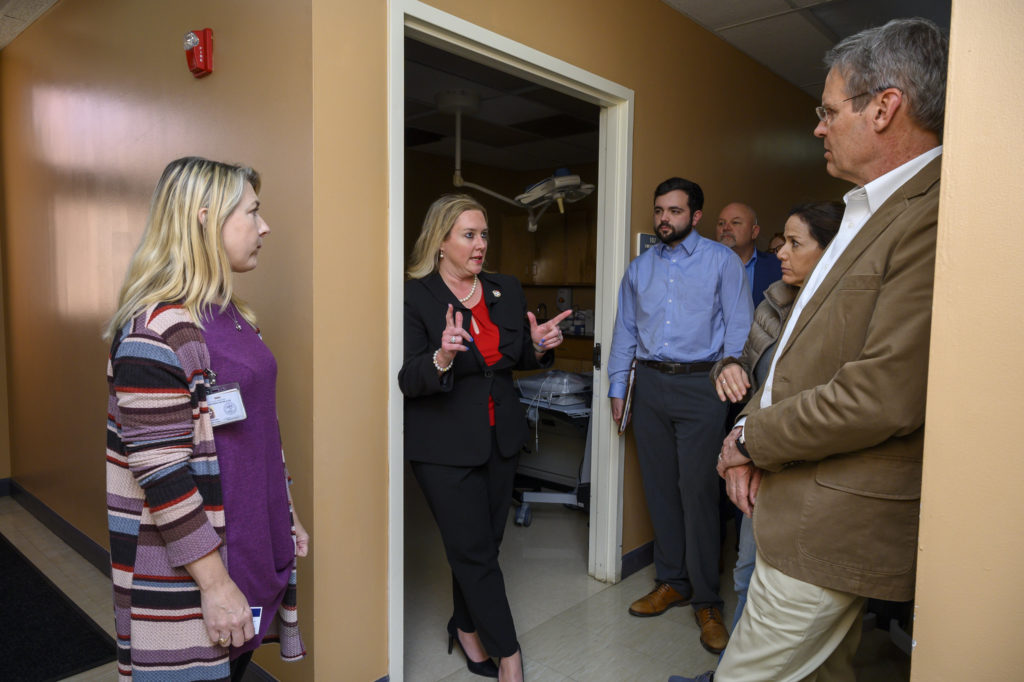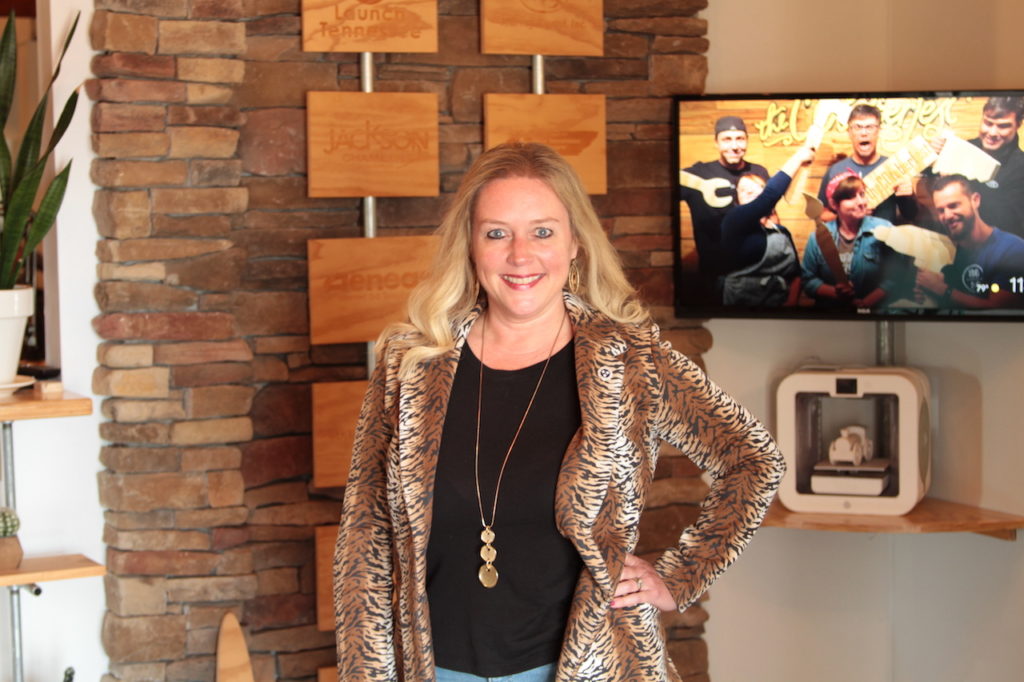
Tennessee’s health commissioner is stepping down, making the announcement Thursday after three years in the role which has become the state’s pandemic chief. On her way out of state government, Dr. Lisa Piercey is asking critics to consider more than just rates of COVID deaths and vaccinations when judging her time in charge.
While Tennessee dodged the early spikes in COVID, the state now has one of the highest death rates in the nation, joining Republican-led states who took a similarly light touch to pandemic restrictions. And the pandemic fatalities are tied closely to the low rate of vaccinations, which remains at 54% — in the bottom seven states.
“If we’re only measuring it on physical health, that’s one thing. But the whole person is a lot broader than that,” Piercey says in an interview with WPLN News. “Let’s talk in a few years when we know how the mental health impact bears out, how the interruption in jobs and education, how that pans out. So let’s talk then.”
Piercey spoke with WPLN News ahead of announcing her departure. She contends the state’s economy and resident’s mental health may bounce back more quickly because of the limited restrictions through much of the pandemic.
The 44-year-old pediatrician is leaving her post partly to spend time with family. Her triplets are heading into their senior year of high school. Professionally, Piercey doesn’t plan to go back to practicing medicine full-time or even running hospitals as she did prior to becoming commissioner with West Tennessee Healthcare. She says she’s launching a consulting firm to advise the growing number of private equity firms interested in investing in various health care sectors.
And Piercey says she’s leaning on lessons gleaned during the pandemic.
‘Facts don’t change people’s minds’
At one point, as Tennessee Gov. Bill Lee was refusing to require masks in public, Piercey dropped by a grocery store in rural Gibson County. The sign on the door read something like, “no masks allowed.”
“It was an interesting case study because I knew these people. That’s where I grew up and that’s where my family still lives,” she says.
While she served as health commissioner, Piercey split her time between her West Tennessee home and an apartment in Nashville. So she experienced the rural-urban divide every week. And on that day, prior to any COVID vaccine being available, she took off her own mask — despite her public statements about their importance — did her shopping and was on her way.
But she had an epiphany about how the messages from Nashville were getting lost somewhere along the way.
“One of the biggest lessons I learned was that facts don’t change people’s minds. And as a scientist that baffled me initially. I thought, ‘Oh, well maybe I need to say it louder? Maybe I need to say it in a more simple term?’ But it wasn’t that,” she says. “What we learned very quickly is facts don’t change people’s minds if it causes them to go against their tribe.”
And a tribe, Piercey says, could be religion, ethnicity, workplace, family or any other way people see themselves in society.
‘I trust you enough to make the right decision for you’
When the tribal divisions transitioned from masking to vaccines, Tennessee was among the first states to produce targeted ads. They were tailored based on feedback from focus groups of vaccine skeptics.
The spots on air and social media didn’t do much to move resistant conservatives from rural parts of the state — and those included some state lawmakers who pressured Piercey to tone down the outreach, especially messages that targeted teens.
Piercey says considering the politics of public health decisions was “a necessary evil” but that she never went against her own convictions as a scientist.
“Every day, all day, my job was to provide the medical data and the health care perspective,” she says. “I’m going to tell you what I know. I’m going to tell you what I think you should do, and I’m happy to share what’s right for me and my family, and I’m also going to tell you what might happen if you don’t do it. But at some point, I respect you enough, and I trust you enough to make the right decision for you — even if it’s different than the decision I’d make for myself.”
 Blake Farmer WPLN News
Blake Farmer WPLN NewsDr. Lisa Piercey poses at The CO business incubator and co-working space in Jackson, where she is on the board of directors.
One of the decisions where Tennessee most clearly flouted federal guidance was on masking in schools. Gov. Lee decided parents know best, despite the CDC’s stance on universal masking in schools at the time in August 2021. Piercey endorsed the decision and defends it now, despite aligning with the most deadly period of the pandemic in Tennessee as the delta variant threatened to overrun hospitals statewide.
“I think there’s still a lot we don’t know,” Piercey says. “Logic would tell us masking an adult is good so masking a kid is also good. As a pediatrician, I’m here to tell you kids are not small adults. What do we know about language development and social development when young children are masked? I’m not saying it’s detrimental, but I’m also not saying that we know that it’s not.”
The research on the potential negative impacts of masking kids remains largely observed — not the gold standard randomized, controlled trials needed for conclusive findings.
Still, states that were quick to make masks optional rather than required were skewered by pundits, editorial boards and even Tennessee public health experts for being reckless. Piercey says the divisiveness surrounding pandemic policymaking left little room for anyone with an open mind.
“It’s being able to be transparent with people and talking about nuance, which is something that our society has seemed to have lost its tolerance for.”

